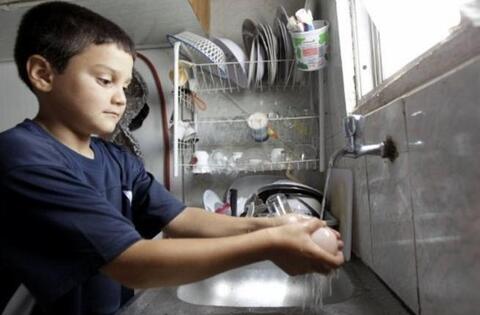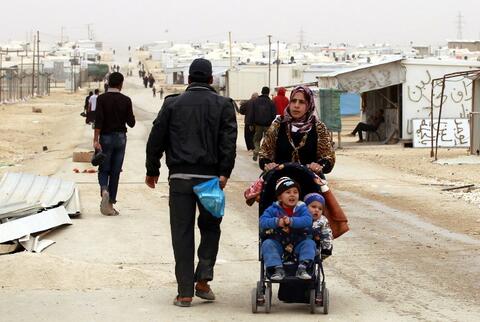This summer season will be "critical" for the water sector, especially since the rainy season only recorded modest amounts that did not exceed 60 per cent of the average annual precipitation, according to the Ministry of Water and Irrigation.
As a result of these modest shares due to the weak rainy season, and summer being early this year, the water deficit may reach about 15 million cubic metres during this “critical” summer, Omar Salameh, spokesperson of the Water Ministry told The Jordan Times on Monday.
Water storage in dams is 80 million cubic metres lower than last year, which puts a great pressure on the ministry and its staff to secure sufficient quantities of water for all areas in the Kingdom, he added.
With the Dead Sea — a lake, really — shrinking at a rate of 3 to 5 feet a year, its saltwater is replaced by freshwater, which rushes in and dissolves subterranean salt layers, some of them hundreds of feet below. Cavities form, creating sinkholes. https://t.co/L7Oqrhp8aj
— Los Angeles Times (@latimes) April 15, 2021
Confirming the existence of a water deficit in some areas, Salameh said that the public’s awareness of and cooperation in responsible consumption and preservation are vital to the challenging season.
He stressed the need for using ground-level tanks in order to store sufficient amounts of water as supplied water might not reach rooftop tanks.
“The ministry and water companies are working hard to meet the public’s basic needs in a reasonable manner, we need people’s cooperation,” he noted.
He added that water networks need constant maintenance as a result of high demand for water due to the pandemic and urban expansion.
JSF paper sheds light on water resources management in agriculture#amman #jordanhttps://t.co/YT9sRiJQce pic.twitter.com/yTDU0eHrAF
— The Jordan Times (@jordantimes) February 28, 2021
“The ministry is exerting great efforts to develop multiple scenarios to deal with the water deficit this season. The ministry has had a success rate of around 38 per cent in Amman, and it aims to modernise water networks, but it needs sufficient funding sources,” he noted.
This article has been adapted from its original source.











